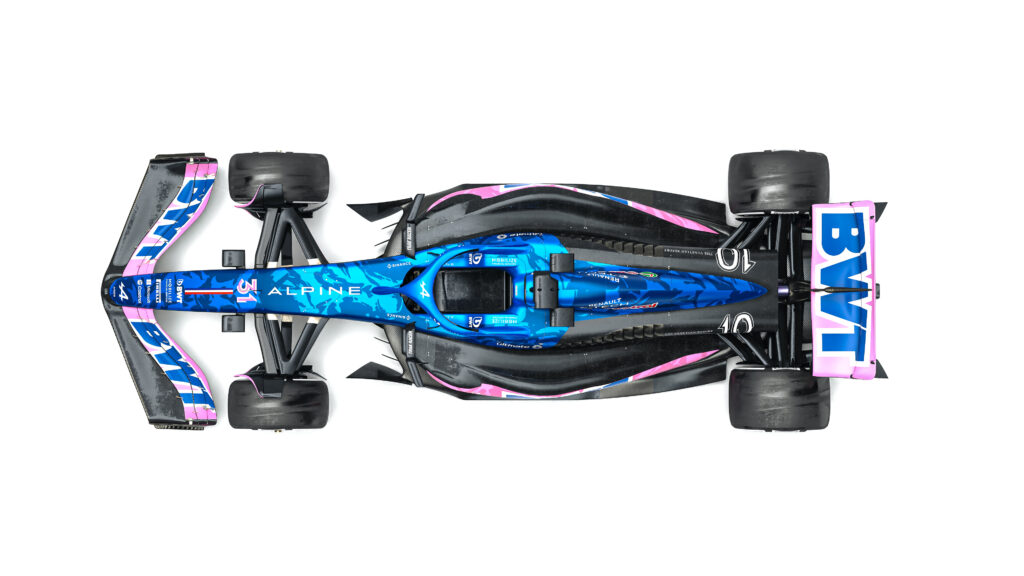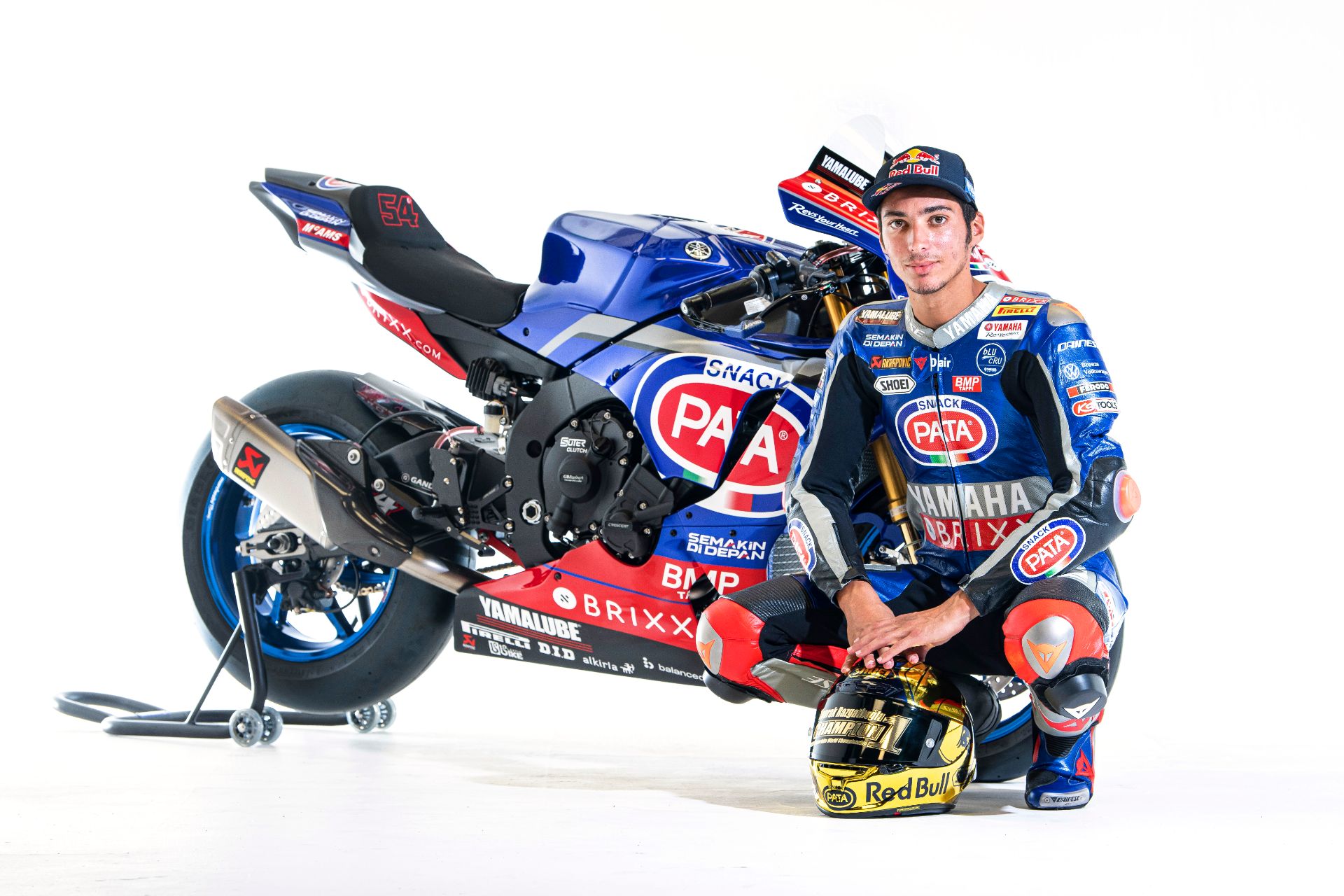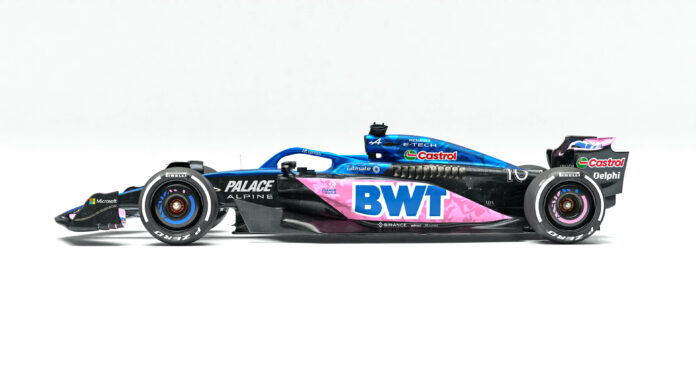Alpine F1 Team’s Engine Dilemma: A Quick Overview
Alpine, a name synonymous with passion and performance in Formula 1, is reportedly considering a major shake-up. The team is weighing the option to ditch their works Renault engine and become a customer team from 2026. This move could significantly change the dynamics of the team and its operations. But what’s driving this potential decision?
Why Alpine Might Ditch Renault Engines
Struggles with Renault Power Units
Renault’s power units have been underwhelming for several years. Since the V6 hybrid era began in 2014, Renault has lagged behind its competitors in terms of performance. This has put Alpine at a considerable disadvantage on the grid.

Performance Issues Since 2014
The hybrid era hasn’t been kind to Renault. Despite past successes, including world championships with Red Bull, the Renault engines have not kept pace with the likes of Mercedes, Ferrari, and more recently, Honda. According to Luca de Meo, Renault’s CEO, the engines developed in 2021 still had a 0.2 to 0.5-second disadvantage per lap. In 2024, Alpine’s struggles are evident, as they sit eighth in the constructors’ championship, with only five points from nine races.
Potential New Partners for Alpine: Who’s in the Running?
Red Bull Powertrains
One potential new partner for Alpine is Red Bull Powertrains. With new engine regulations coming into play in 2026, Red Bull will be supplying engines to both their own team and their sister team. This could open the door for Alpine to secure a deal with them.
Mercedes: A Historical Connection
Mercedes could be another viable option. The German manufacturer will lose Aston Martin as a customer in 2026 when Aston Martin switches to Honda power. Mercedes previously supplied engines to Alpine (then known as Lotus) in 2015. A renewed partnership could be beneficial for both parties.
Honda: A Fresh Start
Honda, set to return to F1 in 2026 with Aston Martin, could also be a potential partner. With their proven track record and recent successes, Honda engines could provide the competitive edge Alpine needs.
The Future of Renault’s Power Unit Operations
Shutting Down Viry-Chatillon
If Alpine decides to go the customer route, it would mean shutting down Renault’s power unit operations at Viry-Chatillon in Paris. This facility has been the heart of Renault’s engine development, and closing it would mark the end of an era.
Bruno Famin’s Role in the Decision-Making Process
Bruno Famin, Alpine’s team principal, has been at the center of these deliberations. Over recent weeks, Famin has been pondering the best course of action for the team. His decisions will play a crucial role in shaping Alpine’s future in Formula 1.
What This Means for the F1 Grid
Increased Competitiveness
Switching to a customer team could increase Alpine’s competitiveness. With a more reliable and powerful engine, they could challenge for higher positions on the grid.
Impact on Renault
For Renault, this move would signify a major shift in focus. Without the pressure of developing competitive F1 power units, they could allocate resources to other areas.
Luca de Meo’s Commitment to Alpine
Despite the potential changes, Renault CEO Luca de Meo remains committed to Alpine. He has reiterated that there are no plans to sell the team. His focus is on making Alpine more competitive and successful in the long run.
Historical Context: Renault’s Hybrid Era Struggles
The Early Days of Hybrid Power
When the hybrid era began in 2014, Renault’s engines struggled. Despite their history of success, they couldn’t match the performance levels of their rivals. This set the tone for the challenges that followed.
The 2021 Engine and Beyond
In 2021, Renault developed a new engine, but it still fell short. The performance gap, ranging from 0.2 to 0.5 seconds per lap, highlighted the ongoing issues. This continued underperformance has been a major factor in Alpine’s consideration to become a customer team.
Alpine’s 2024 Season: A Tough Start
The 2024 season has been challenging for Alpine. With just five points from the first nine races, they are far from where they want to be. This difficult start underscores the need for change and improvement.
Possible Outcomes of the Customer Team Move
Enhanced Performance
By securing a more competitive engine, Alpine could see a significant boost in performance. This could translate into better results and a higher standing in the constructors’ championship.
Strategic Focus
As a customer team, Alpine could focus more on other aspects of performance, such as aerodynamics and chassis development. This strategic shift could help them become a more well-rounded and competitive team.
Final Thoughts: The Road Ahead for Alpine
The potential move to become a customer team represents a significant shift for Alpine. With several viable engine suppliers, the team has options to consider. The decisions made in the coming months will be crucial in determining Alpine’s future in Formula 1.
Alpine’s Potential Move to Customer F1 Team: A Detailed Analysis
Understanding the Shift from Works to Customer Team
Alpine’s potential transition from a works team, relying on Renault engines, to a customer team could redefine their future in Formula 1. This strategic move comes after years of struggling with underperforming power units, which have left the team at a competitive disadvantage.
The Renault Engine Performance Issue
A History of Struggles
Renault’s engines have been problematic since the V6 hybrid era began in 2014. Despite the team’s historical success, their hybrid engines have consistently lagged behind rivals like Mercedes, Ferrari, and Honda. This performance gap has been a significant factor in Alpine’s current struggles.
Specific Performance Gaps
The engines developed by Renault in recent years, including the 2021 unit, have consistently shown a 0.2 to 0.5-second disadvantage per lap. This consistent underperformance has made it challenging for Alpine to compete effectively at the highest level.
Exploring New Engine Partners
Red Bull Powertrains: A New Frontier
One of the most talked-about options for Alpine is Red Bull Powertrains. With new engine regulations set to take effect in 2026, Red Bull will be supplying engines to both Red Bull Racing and their sister team. This presents an opportunity for Alpine to secure a deal with a highly competitive engine supplier.
Mercedes: A Proven Partner
Mercedes is another strong contender. With Aston Martin switching to Honda power in 2026, Mercedes will be losing a customer. Given their historical connection with Alpine, when the team was known as Lotus in 2015, a renewed partnership could be mutually beneficial.
Honda: Returning with Strength
Honda’s return to Formula 1 in 2026, powering Aston Martin, also makes them a potential partner for Alpine. Honda’s recent successes and proven track record could provide Alpine with the competitive edge they need.
Shutting Down Renault’s Power Unit Operations
The End of an Era at Viry-Chatillon
Transitioning to a customer team would mean shutting down Renault’s power unit operations at Viry-Chatillon. This facility has been central to Renault’s engine development for years. Closing it would mark a significant shift in Renault’s involvement in Formula 1.
Bruno Famin’s Strategic Decisions
Leading the Deliberations
Alpine team principal Bruno Famin has been at the forefront of these discussions. Weighing the pros and cons of becoming a customer team, Famin’s decisions will play a crucial role in shaping Alpine’s future trajectory in Formula 1.
Implications for the F1 Grid
Increased Competitiveness for Alpine
Switching to a customer team could make Alpine more competitive. With a more reliable and powerful engine, they could compete for higher positions on the grid, potentially becoming a stronger contender in the constructors’ championship.
Strategic Shifts for Renault
For Renault, this move would signify a major strategic shift. Without the burden of developing competitive F1 power units, Renault could reallocate resources to other projects and initiatives, potentially strengthening other areas of their business.
Luca de Meo’s Commitment to Alpine
Strong Leadership and Vision
Despite rumors and potential changes, Renault CEO Luca de Meo has reiterated his commitment to the Alpine F1 team. De Meo has made it clear that there are no plans to sell the team. His focus remains on improving Alpine’s competitiveness and securing a successful future.
Historical Context: Renault’s Hybrid Era Challenges
Early Struggles
When the hybrid era began in 2014, Renault’s engines were not up to par. This initial struggle set the tone for the following years, with Renault consistently lagging behind its competitors in terms of performance.
The 2021 Engine: A Missed Opportunity
The engine developed in 2021 was expected to close the performance gap, but it fell short. The ongoing performance issues, ranging from 0.2 to 0.5 seconds per lap, have been a significant factor in Alpine’s decision to consider becoming a customer team.
Alpine’s 2024 Season: Underwhelming Performance
A Tough Start
The 2024 season has been challenging for Alpine. With only five points from the first nine races, the team is far from where it wants to be. This difficult start has underscored the need for change and improvement within the team.
Potential Outcomes of Becoming a Customer Team
Enhanced Performance on the Grid
Securing a more competitive engine could significantly boost Alpine’s performance. This could translate into better race results, higher points, and an improved standing in the constructors’ championship.
Strategic Focus and Development
As a customer team, Alpine could shift its focus to other areas of performance, such as aerodynamics and chassis development. This strategic shift could help the team become more well-rounded and competitive in the long run.
Conclusion: The Future Looks Promising
The potential move to become a customer team represents a significant strategic shift for Alpine. With several viable engine suppliers, the team has multiple options to consider. The decisions made in the coming months will be crucial in determining Alpine’s future in Formula 1.
































